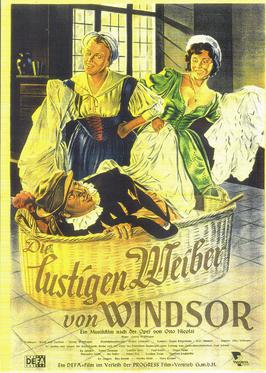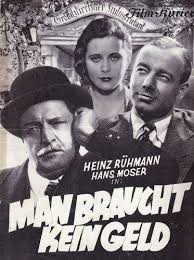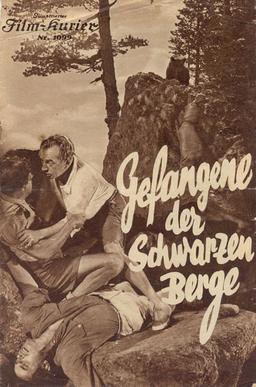Related Research Articles

Heinrich Wilhelm "Heinz" Rühmann was a German film actor who appeared in over 100 films between 1926 and 1993. He is one of the most famous and popular German actors of the 20th century, and is considered a German film legend. Rühmann is best known for playing the part of a comic ordinary citizen in film comedies such as Three from the Filling Station and The Punch Bowl. During his later years, he was also a respected character actor in films such as The Captain from Köpenick and It Happened in Broad Daylight. His only English-speaking movie was Ship of Fools in 1964.

Cinema of Austria refers to the film industry based in Austria. Austria has had an active cinema industry since the early 20th century when it was the Austro-Hungarian Empire, and that has continued to the present day. Producer Sascha Kolowrat-Krakowsky, producer-director-writer Luise Kolm and the Austro-Hungarian directors Michael Curtiz and Alexander Korda were among the pioneers of early Austrian cinema. Several Austrian directors pursued careers in Weimar Germany and later in the United States, among them Fritz Lang, G. W. Pabst, Josef von Sternberg, Billy Wilder, Fred Zinnemann, and Otto Preminger.

Sodom und Gomorrha: Die Legende von Sünde und Strafe is an Austrian silent epic film from 1922. It was shot on the Laaer Berg, Vienna, as the enormous backdrops specially designed and constructed for the film were too big for the Sievering Studios of the production company, Sascha-Film, in Sievering. The film is distinguished, not so much by the strands of its often opaque plot, as by its status as the largest and most expensive film production in Austrian film history. In the creation of the film between 3,000 and 14,000 performers, extras and crew were employed.
The German Mathematical Society is the main professional society of German mathematicians and represents German mathematics within the European Mathematical Society (EMS) and the International Mathematical Union (IMU). It was founded in 1890 in Bremen with the set theorist Georg Cantor as first president. Founding members included Georg Cantor, Felix Klein, Walther von Dyck, David Hilbert, Hermann Minkowski, Carl Runge, Rudolf Sturm, Hermann Schubert, and Heinrich Weber.

The Merry Wives of Windsor is a 1950 East German musical comedy film directed by Georg Wildhagen. It was based on William Shakespeare's play by the same name.

No Money Needed is a 1932 German comedy film directed by Carl Boese and starring Hedy Lamarr, Heinz Rühmann, and Hans Moser. It was shot at the Babelsberg Studios in Berlin with sets designed by the art director Julius von Borsody. It premiered on 5 February 1932. It was based on a play by Ferdinand Alternkirch and was shot during November 1931. A French remake and an Italian remake were made in 1933. Boese himself remade the story in 1953 under the title The Uncle from America.

Under the Lantern is a 1928 German silent film directed by Gerhard Lamprecht and starring Lissy Arna, Gerhard Dammann and Mathias Wieman. The film's art direction was by Otto Moldenhauer.

Song of the Black Mountains or Phantom of Durmitor is a 1933 German-Yugoslav film directed by K. Breiness and Hans Natge and starring Ita Rina, Blandine Ebinger and Ernst Dumcke. It was shot at the Terra Studios in Berlin.

Silence in the Forest is a 1937 German drama film directed by Hans Deppe and starring Hansi Knoteck, Paul Richter and Gustl Gstettenbaur.
The Arsonists of Europe is a 1926 Austrian silent drama film directed by Max Neufeld and starring Charlotte Ander, Eugen Neufeld and Robert Valberg. It was shot at the Sievering Studios in Vienna. The film's sets were designed by Artur Berger.

The Dairymaid of St Kathrein or The Milkmaid of St. Kathrein is a 1955 Austrian drama film directed by Herbert B. Fredersdorf and starring Anita Gutwell, Rudolf Lenz and Rudolf Carl. It is a heimatfilm, inspired by the success of the earlier The Forester of the Silver Wood which featured the same leading actors. A further film Forest Liesel was made in 1956 by Fredersdorf.
The Venus is a 1922 Austrian silent film directed by Hans Homma and starring Raoul Aslan, Magda Sonja and Nora Gregor.
The Ghost of Morton's Castle is a 1922 Austrian silent film directed by Hans Homma and starring Grit Haid and Egon von Jordan.
The Marquise of Clermont is a 1922 Austrian silent film directed by Hans Homma and starring Grit Haid, Egon Friedell and Adolf Weisse.
William Ratcliff is a 1922 Austrian silent film directed by Heinz Hanus and starring Oscar Beregi Sr., Hanna Ralph and Albert von Kersten.
The Hell of Barballo is a 1923 Austrian silent drama film directed by Hans Homma and starring Grit Haid, Hilde Schulz and Albert von Kersten.
References
- ↑ Caneppele & Krenn p.188